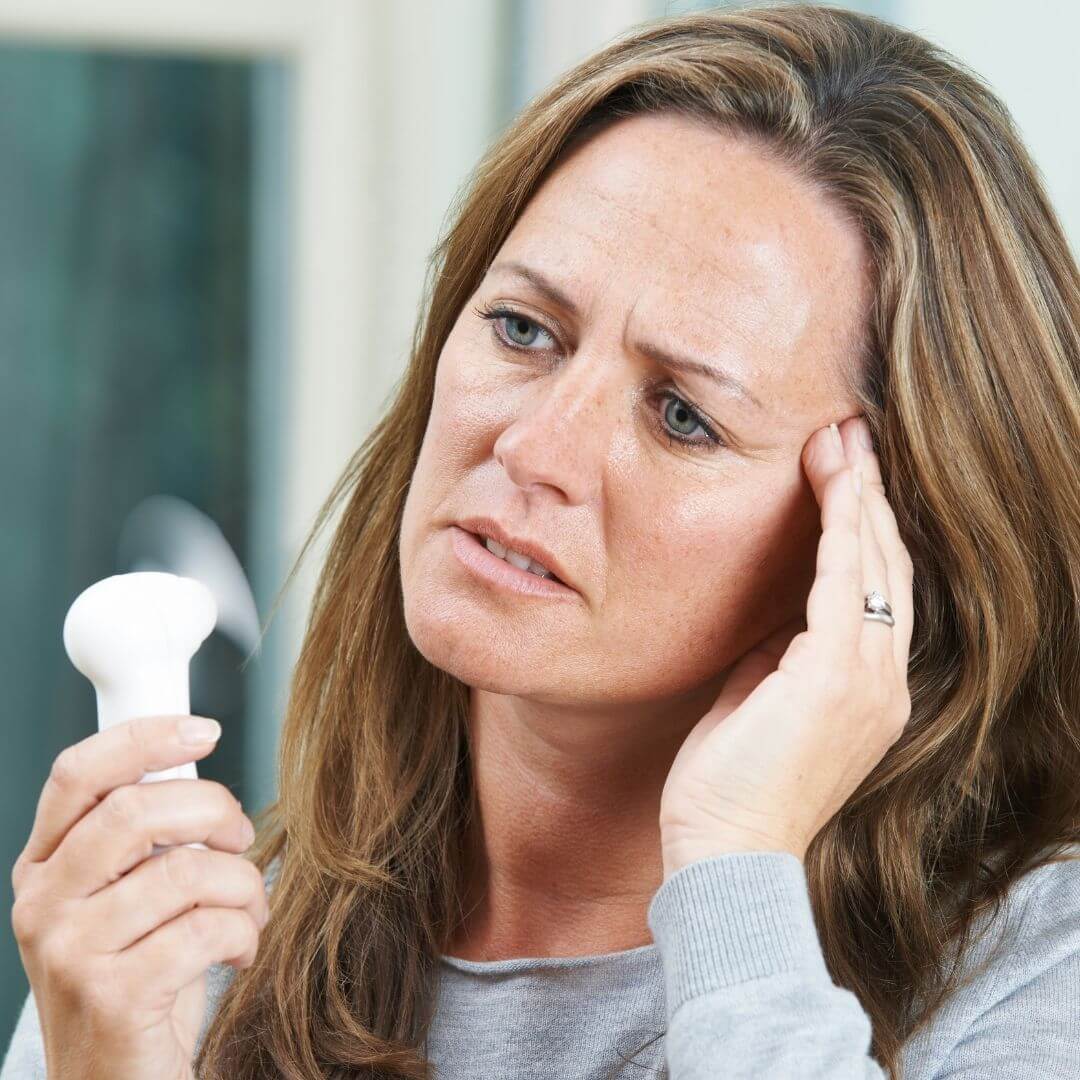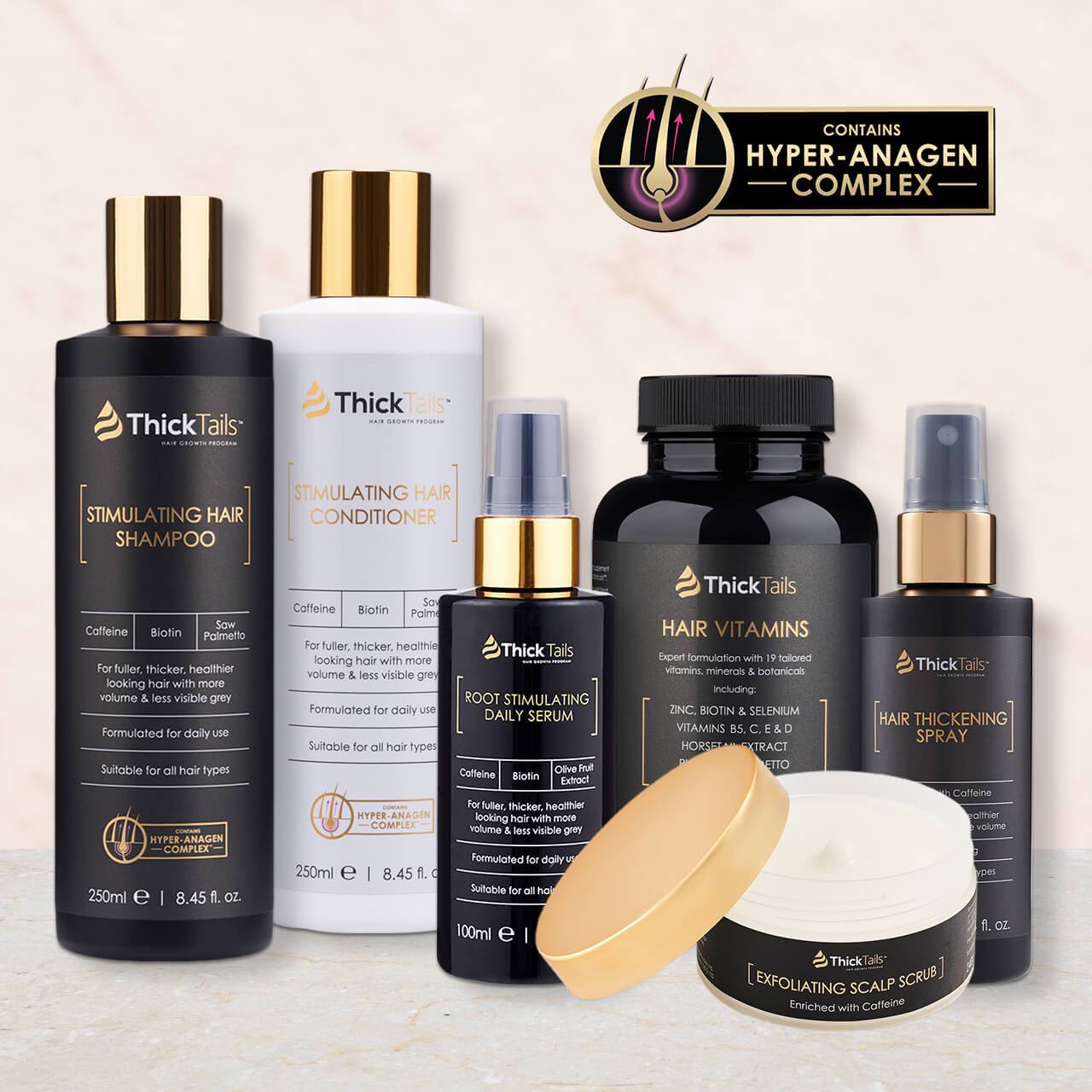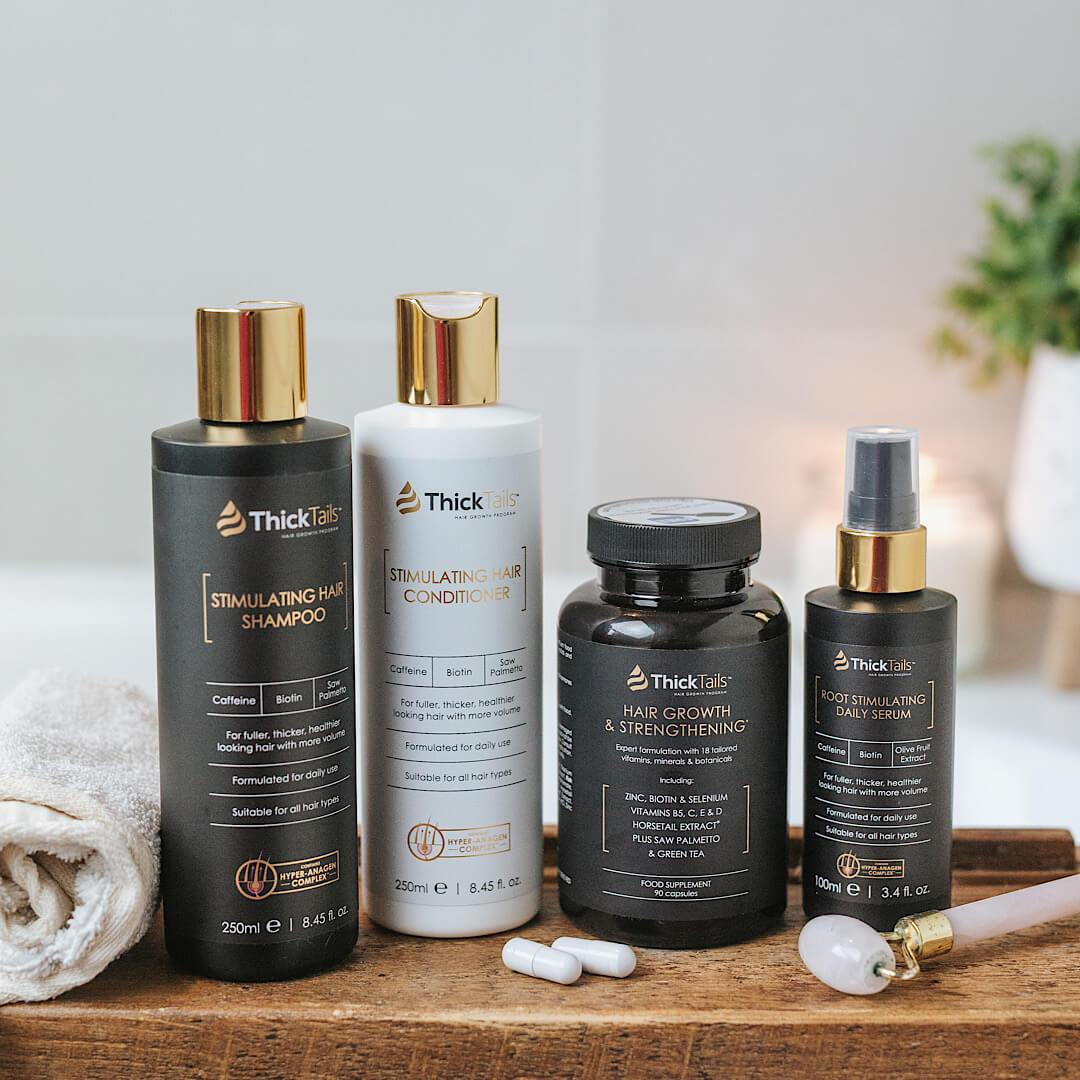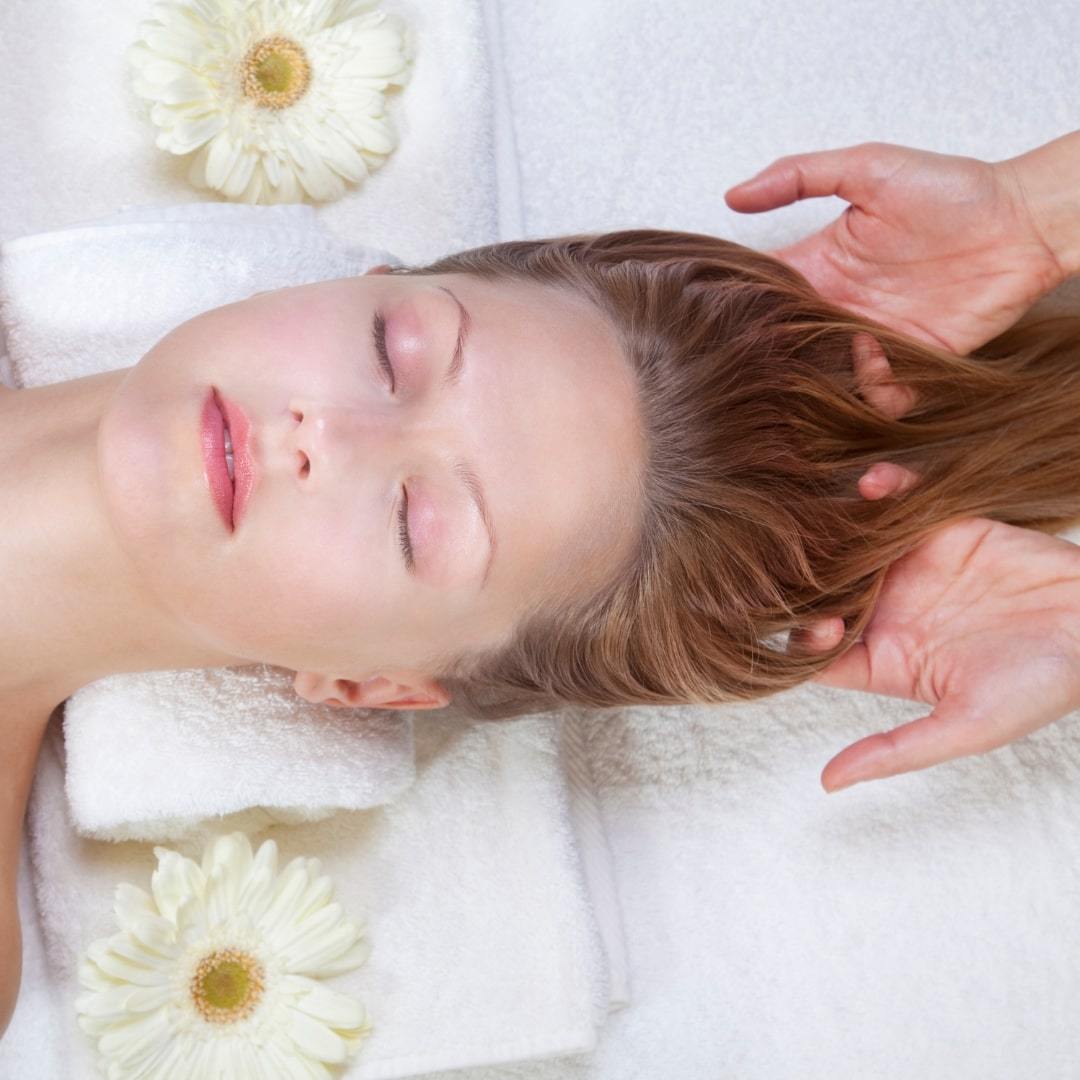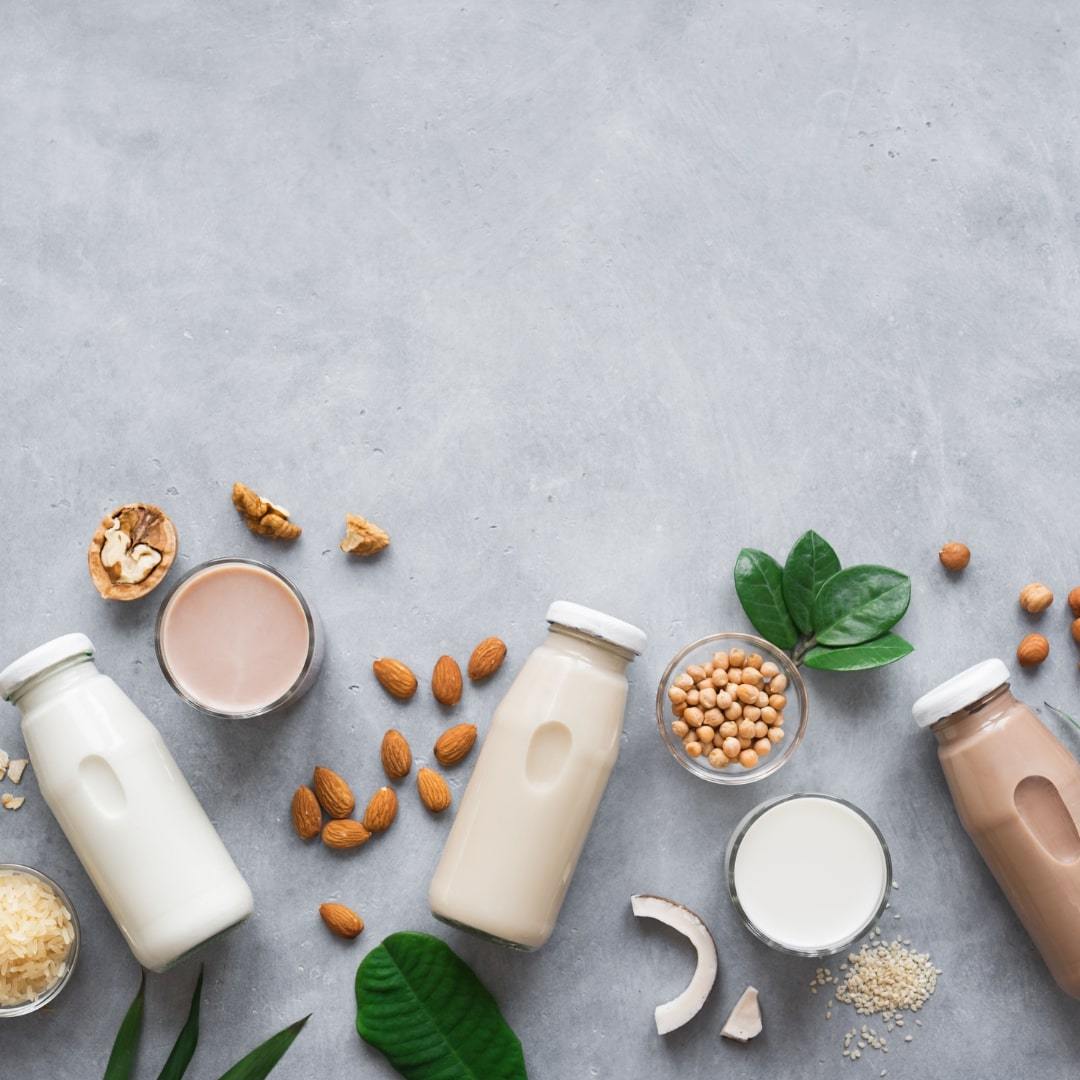Are you looking for a natural, cost-effective remedy to fight hair loss due to hormonal imbalances like menopause or postpartum recovery? If so, you may have heard of the purported benefits of peppermint oil. While this product has been shown to yield impressive results in the realm of aromatherapy and skin care, can it effectively tackle hair growth issues? In this blog post, we'll be exploring the truth about peppermint oil's effects on hair health and determining whether or not it should be part of your routine. Ready to get started? Read on!
What is peppermint oil and what does it do for your hair

Peppermint oil is an essential oil obtained from the peppermint plant. It has many uses in hair care, including stimulating circulation in the scalp, reducing dryness and itchiness, promoting hair growth, and refreshing the skin. Peppermint oil also works to moisturize the hair shaft, protect against split ends, and reduce greasiness. Because it has antiseptic properties, peppermint oil can help ward off bacterial or fungal infections of the scalp as well. Many people have reported beneficial effects when using peppermint oil on their hair; however, it's important to keep diluting it with a carrier oil as pure essential oils can cause irritation and allergic reactions. Adding peppermint oil to your haircare routine is a great way to get some of its benefits while gaining softer and healthier strands!
Different types of peppermint oil available
From classic oil of peppermint, to essential oil of cornmint, there are so many varieties of peppermint oil available on the market today. Distilling methods and location of cultivation can affect the intensity, aroma and overall chemical makeup of each variety and the medicinal properties each is capable of providing. Jasmine mint and Beijing mint are two famous Chinese varieties, much different than our great American classic oil of peppermint. Though some oils are created through chemical processes, most are steam distilled from wild-grown or locally cultivated vegetation with respect for sustainable practices. When searching for a unique scent or therapeutic benefit, it may be worth exploring these lesser known varieties - you'll be sure to discover something new!
Benefits of using peppermint oil on your hair
Peppermint oil has become increasingly popular when it comes to treating your hair, and there are plenty of reasons why. One of the most notable benefits peppermint oil has is its ability to stimulate growth, as both the aromatherapy and topical uses create healthy circulation in the area which can in turn promote strong and long hair. Additionally, peppermint oil contains menthol, which has anti-fungal and antibacterial properties that can help keep your scalp free from infection or irritation. You'll also be pleased to know that peppermint oil's cooling sensation can provide a refreshing feeling after application, while its antiseptic benefits helps to remove dandruff - an effective remedy for those with an oily scalp. All in all, always remember that using peppermint oil on your hair provides you with an array of benefits.
How to apply peppermint oil correctly to get maximum benefit

Applying peppermint oil correctly can lead to maximum benefit! Before you apply the oil, make sure you start by washing your hair regularly. A good shampoo and conditioner combination can help support the health of your hair and scalp. To maximize benefits, use a scalp scrub once a week to slough away dead skin cells and dirt. Additionally, consider taking hair vitamins; they can give your scalp the extra nourishment it needs for growth and strength. Once your hair is clean and healthy, use peppermint oil as a natural solution to invigorate your scalp. For best results, massage it gently into the scalp before rinsing with cold water for an added shine boost!
Is there a risk of side effects when using peppermint oil
Peppermint oil is a popular essential oil that is often used to alleviate gas, indigestion, and headaches. Though it can bring many beneficial effects, using peppermint oil also comes with potential risks. Generally, the most common side effects are minor and include skin irritation, heartburn, and allergic reactions. To reduce the risk of experiencing any side effect when using peppermint oil, it is always recommended to use only high-quality oils provided by trusted sources and dilute the oil in a carrier before applying it topically or ingesting it orally. Additionally, individuals should always consult with their healthcare provider before using this or any other essential oil for medicinal purposes.
Tips to ensure you’re getting the best results from using peppermint oil on your hair
Peppermint oil is a great tool to have in your hair care arsenal, however proper use is needed for the best results. Start off by brushing and combing through your hair prior to applying it. Then, mix a few drops of the peppermint oil with a serum or other hair product and liberally apply it from root to tips. Be sure to also use natural products like shampoo, conditioner, and even hair vitamins regularly if you want optimal results. These steps should give you the best outcome when incorporating peppermint oil into your haircare routine.
Therefore, whether you’re seeking to restore sheen and volume to lifeless hair or are looking for a way to help control dandruff and other scalp issues, peppermint oil seems like an excellent choice. With its natural antibacterial, antifungal, anti-inflammatory and antimicrobial properties, it is truly a miracle worker when it comes to caring for your hair. The key is finding the right kind of peppermint oil for your needs and using it correctly. Be sure to read all the instructions on the bottle carefully before you begin and take care to use only a small amount in order to avoid any potential side effects. With these tips in mind, you can confidently incorporate peppermint oil into your haircare routine safe in the knowledge that you’ll be able to reap the rewards of better looking hair in no time at all!

